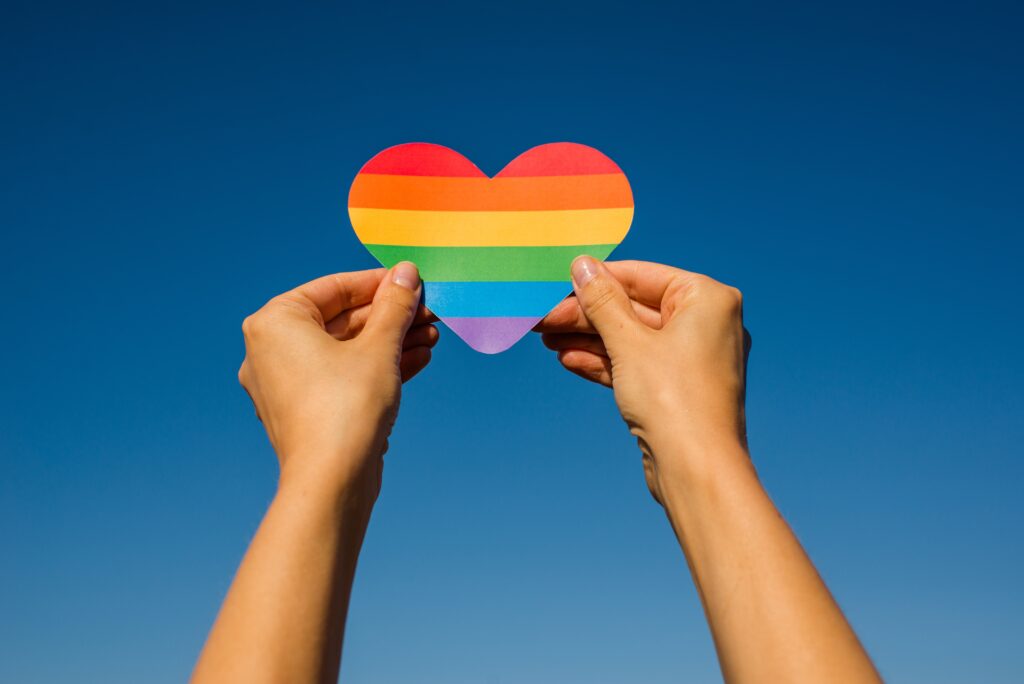Love knows no boundaries, and the LGBTQ community has long championed this sentiment. LGBTQ, an acronym for lesbian, gay, bisexual, transgender, and queer, encompasses a vibrant and diverse group of individuals who form relationships based on mutual love and understanding. However, like any relationship, LGBTQ partnerships face their own unique set of challenges. In this article, we will explore the various LGBTQ relationship issues faced by couples and offer guidance on how to build and maintain healthy, fulfilling relationships.
Contents
Understanding LGBTQ
Understanding LGBTQ (Lesbian, Gay, Bisexual, Transgender, Queer/Questioning) is important for fostering inclusivity and promoting acceptance. Here are some key points to consider:
- Sexual Orientation: LGBTQ individuals have diverse sexual orientations. Lesbians are women attracted to women, gay men are attracted to men, bisexual individuals are attracted to both men and women, and queer/questioning individuals may be exploring their sexual orientation.
- Gender Identity: Gender identity refers to a person’s internal sense of their gender, which may not align with the sex they were assigned at birth. Transgender individuals may identify as a gender different from the one assigned to them at birth.
- Coming Out: Coming out is the process of revealing one’s LGBTQ identity to oneself and others. It is a deeply personal journey that varies for each individual. Coming out can be a positive experience, but it can also be challenging due to potential stigma, discrimination, or lack of acceptance.
Challenges Faced by LGBTQ Couples

LGBTQ couples may encounter specific challenges that are influenced by societal attitudes, legal frameworks, and personal experiences. Here are some common challenges faced by LGBTQ couples:
- Legal Recognition: In many parts of the world, LGBTQ couples face obstacles in obtaining legal recognition of their relationships. Same-sex marriage or civil union laws may not be universally available, leading to limited rights and protections for LGBTQ couples.
- Social Stigma and Discrimination: LGBTQ couples may experience prejudice, discrimination, and social stigma due to their relationship. This can manifest in various forms, such as verbal harassment, exclusion from social and religious institutions, and negative attitudes from family members or friends.
- Family Acceptance: Coming out and gaining acceptance from family members can be a significant challenge for LGBTQ couples. Some families may struggle to understand or support their loved ones’ same-sex or gender-nonconforming relationships, leading to strained family dynamics and potential emotional distress.
- Mental Health Issues: LGBTQ individuals, including couples, often face higher rates of mental health challenges such as depression, anxiety, and substance abuse. These issues can stem from the stress of navigating societal attitudes, discrimination, and the challenges associated with forming and maintaining relationships.
- Parenting Challenges: LGBTQ couples who choose to become parents may face legal and social barriers. Adoption processes, parental rights, and access to assisted reproductive technologies can be complex and differ based on jurisdiction. Additionally, LGBTQ parents may encounter judgment or bias from educational institutions, healthcare providers, and other parents.
Communication and Understanding in LGBTQ Relationship Issues
These are some of the ways for building communication and understanding of LGBTQ relationship issues:
Open and Honest Communication
Effective communication is the cornerstone of any healthy relationship, and it holds particular significance in LGBTQ partnerships. Openly discussing desires, concerns, and expectations helps foster mutual understanding and allows couples to navigate the unique aspects of their relationship with respect and empathy.
Navigating Gender Identities and Expressions
LGBTQ relationships often involve navigating diverse gender identities and expressions. Partners must actively engage in conversations about gender, pronouns, and how to support each other’s authentic selves. Education and learning about gender diversity can help couples develop a stronger bond and create an inclusive environment.
Addressing Intersectionality in Relationships
Intersectionality, the intersection of multiple social identities, such as race, ethnicity, and socioeconomic status, can greatly impact LGBTQ relationships. Recognizing and addressing the unique challenges that arise from these intersections is crucial for understanding and supporting each other within the relationship.
Building Empathy and Active Listening
Building empathy and practicing active listening are vital for fostering a supportive and loving LGBTQ relationship. By genuinely seeking to understand each other’s experiences and emotions, partners can create an environment that values each individual’s perspective, leading to stronger bonds and increased emotional intimacy.
Building a Strong Foundation

These are some of the ways for building a strong foundation:
Establishing shared values and goals
Establishing shared values and goals is essential for building a strong foundation in any relationship. Discussing and aligning values related to family, career, finances, and personal growth enables LGBTQ couples to create a roadmap for their future together.
Managing conflicts and disagreements
Conflicts and disagreements are natural in any relationship, and LGBTQ partnerships are no exception. Learning healthy conflict resolution strategies, such as active listening, compromise, and finding common ground, can help couples navigate challenging situations and strengthen their bond.
Balancing independence and Interdependence
Finding a balance between independence and interdependence is crucial in LGBTQ relationships. Partners must respect each other’s individuality while fostering a sense of togetherness and support. Striking this balance promotes personal growth while nurturing the connection between partners.
Cultivating trust and intimacy
Trust and intimacy are vital aspects of any successful relationship. In LGBTQ partnerships, where external challenges may strain the relationship, cultivating trust becomes even more important. Engaging in open conversations about boundaries, past experiences, and fears helps build a solid foundation of trust and promotes emotional and physical intimacy.
Mental health and Self-care
Mental health and self-care are vital aspects of overall well-being for everyone, including LGBTQ individuals. Here are some important considerations related to mental health and self-care:
- Prioritize Self-Care: Make self-care a priority in your life. Self-care involves engaging in activities that promote your physical, emotional, and mental well-being. This can include activities like exercising, getting enough sleep, practicing mindfulness or meditation, engaging in hobbies, spending time in nature, or seeking support from loved ones.
- Seek Support: Reach out to supportive friends, family members, or members of the LGBTQ community who can provide understanding and empathy. Having a support network is crucial for mental health. Additionally, consider seeking professional help from therapists or counselors trained in LGBTQ issues who can provide guidance and support tailored to your specific needs.
- Practice Mindfulness and Stress Reduction: Incorporate mindfulness techniques into your daily routine to reduce stress and improve your mental well-being. This can include activities like deep breathing exercises, meditation, or engaging in activities that bring you joy and relaxation.
- Address Mental Health Concerns: If you’re experiencing mental health challenges, don’t hesitate to seek help. LGBTQ individuals often face higher rates of mental health issues such as depression, anxiety, and substance abuse. Professional help can provide you with the necessary tools and support to navigate these challenges.
Overcoming External Challenges

Overcoming external challenges as an LGBTQ individual or couple can be a process that requires resilience, support, and strategic action. Here are some suggestions for addressing and navigating external challenges:
- Seek Supportive Communities: Connect with LGBTQ-supportive communities and organizations. Surrounding yourself with understanding and accepting individuals can provide a sense of belonging and support. These communities can offer resources, guidance, and advocacy for your rights and well-being.
- Educate Others: Advocate for change by educating others about LGBTQ issues and promoting understanding and acceptance. This can involve sharing your personal experiences, engaging in conversations, and challenging misconceptions and stereotypes. Education and awareness play a vital role in fostering positive change.
- Find Allies: Build alliances with individuals who are supportive of LGBTQ rights and equality. Allies can be friends, family members, colleagues, or community leaders who can help amplify your voices, advocate for your rights, and create safe spaces for LGBTQ individuals.
- Legal Knowledge: Familiarize yourself with the legal protections and rights available to LGBTQ individuals in your jurisdiction. This includes understanding anti-discrimination laws, healthcare rights, and relationship recognition laws. Knowing your legal rights can empower you to take appropriate action if they are violated.
- Seek Legal Assistance: In cases where you face legal challenges, discrimination, or rights violations, consider seeking legal assistance from professionals specializing in LGBTQ legal matters. They can guide your options and help you navigate legal processes.
Conclusion
In conclusion, LGBTQ relationships are built on love, respect, and understanding, just like any other relationship. However, the challenges faced by LGBTQ couples are unique and require specific attention and support. By openly addressing discrimination, embracing effective communication, building a strong foundation, prioritizing mental health and self-care, and overcoming external challenges through advocacy and support, LGBTQ couples can navigate relationship issues successfully. Together, we can create a more inclusive and accepting world for all.
Life may sometimes be challenging for people from the LGBTQ community, but Online LGBTQ Counseling can help. Get experienced LGBTQ therapists at PrideMantra: Book a trial LGBTQ therapy session.


